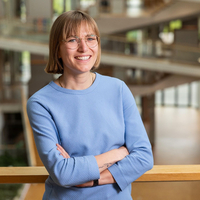Number Theory Seminar: Abhinandan
Hybrid, UniDistance campus room 513 and online via Zoom
Universality is a remarkable phenomenon in probability theory: diverse random systems, despite their microscopic differences, often exhibit the same macroscopic behaviour. The most famous example is the central limit theorem, which allows school children to approximate the chance of flipping more than 60 heads in 100 coin tosses using a normal distribution table—even though the coin itself is not normally distributed.
A similar regularizing effect of randomness can be observed in random networks. This helps explain why broccolis look somewhat like trees—and even like the bronchioles in our lungs. Universality principles are not only mathematically fascinating, but also powerful in applications. If we can show that broccolis, trees, and other random structures satisfying basic assumptions resemble the same random fractal, then we can deduce global properties without needing to fully understand local interactions.
In this talk, I will introduce the idea of universality in random graphs, highlighting its combinatorial, probabilistic, and geometric aspects, and exploring recent developments in this area of research.

Serte Donderwinkel is an assistant professor (with a tenure track) in probability theory at the University of Groningen. She is also affiliated with the interdisciplinary centre CogniGron of mathematicians, statisticians, computer scientists and material engineers that aim to improve learning-based cognitive computing with materials-centred systems. Her research is supported by a European Commission Marie Skłodowska-Curie Fellowship. She also won the Royal Statistical Society's prize for UK's best applied probability PhD thesis of 2022 and 2023.
The link for participation in the event is the following: fernuni.zoom.us/j/64850280617.
Sign up below to receive a reminder 24 hours before the event.